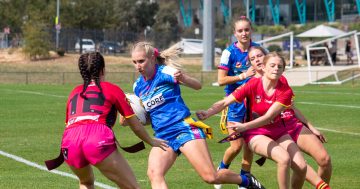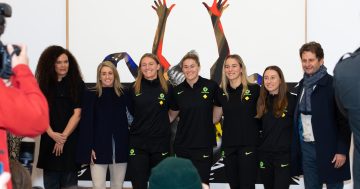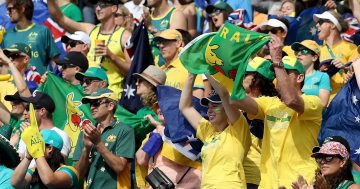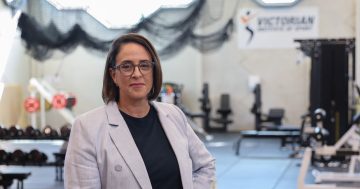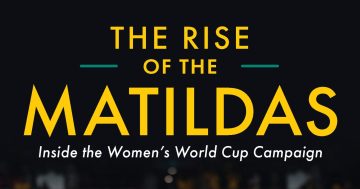Rebecca DiNuzzo* says Deakin University has launched a study to examine the impact cyberhate has on female and gender diverse athletes.
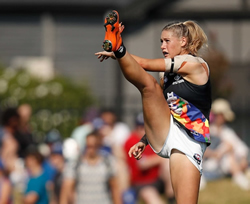 Derogatory, violent, and sexualised online vitriol directed at female and gender diverse professional athletes will be the subject of a ground-breaking Australian-first study by Deakin University.
Derogatory, violent, and sexualised online vitriol directed at female and gender diverse professional athletes will be the subject of a ground-breaking Australian-first study by Deakin University.
Female and gender diverse current or former athletes across the nation and from all sporting codes will be asked to share their experience of being trolled to examine the impact of cyberhate on professional and elite sportspeople in women’s sport.
Project lead Caitlin McGrane said the research team were interested to hear from any person who competed or participated in women’s sport at the top level who had been subjected to or witnessed hateful or intimidating online behaviour.
Survey respondents will be anonymised for privacy and will have the option of participating in a further sit-down interview.
Ms McGrane said it was her hope respondents would report candidly on their experience so the full extent of the issue could be analysed.
“Research shows women and those who participate in women’s sport at an elite or professional level tend to be targeted for their achievements. This happens in many spaces where women or those who identify as gender diverse obtain success in a traditionally male-dominated field, whether that be on the sport track or in the workplace,” Ms McGrane said.
“We want to find out how prevalent gendered online harassment is in professional women’s sport, what the impact of this is and what needs to be done to make online communities a safer space for women and gender diverse people.
“While we know male sport players and identities are also targeted by critical or unsavoury commentary because they are in the public eye, the key difference is it tends not to be as violent, vicious or sexual in nature.”
Deakin Centre for Sport Research Associate Professor Kim Toffoletti, who is assisting with the study, said the team was inspired to pursue the research following the now famous photo taken of AFLW player Tayla Harris as she kicked a ball during a match in 2019.
The photo attracted foul, sexualised comments online and Associate Professor Toffoletti said there were countless other examples of professional female or gender diverse athletes who had been ridiculed, body-shamed or told to “go back to the kitchen”.
These included rugby league footballer Julia Robinson, former Australian rules football coach and player Dani Laidley, Australian handball player and transgender athlete Hannah Mouncey, and most recently Australian coach and former tennis player Jelena Dokic who was criticised for her appearance during Melbourne’s Australian Open.
“Australia is set to play host to major upcoming sport events including the FIFA Women’s World Cup in July and the Victorian Commonwealth Games in 2026.
“These are important arenas for athletes to compete at the highest level, but what does it say about us as a sporting nation if they are maligned or targeted because of their body shape or for the way they perform on the field. Such as, for example, how they look when they kick a ball,” Associate Professor Toffoletti said.
“We will explore the impact this commentary has on players’ performance – such as, do they avoid kicking a ball in a certain way lest they make themselves a target for online trolls. We’ll also seek to find out if these sport professionals are reluctant to engage with online communities because they are concerned about potential backlash, and if this impacts their careers or potential sponsorship opportunities.
“Ultimately, what we’re seeing is there seems to be a desire among some segments of the community to put these highly skilled athletes and sports identities ‘back in their place’. We want to address this mindset for the benefit of women’s sport.”
The study has been funded by the State Government’s Department of Families, Fairness and Housing (DFFH).
The research findings will be shared with DFFH and meetings will be held with sport organisations and governing bodies to discuss the findings and their application.
*Rebecca DiNuzzo, Coordinator, Communications, Deakin University.
This article first appeared at deakin.edu.au


